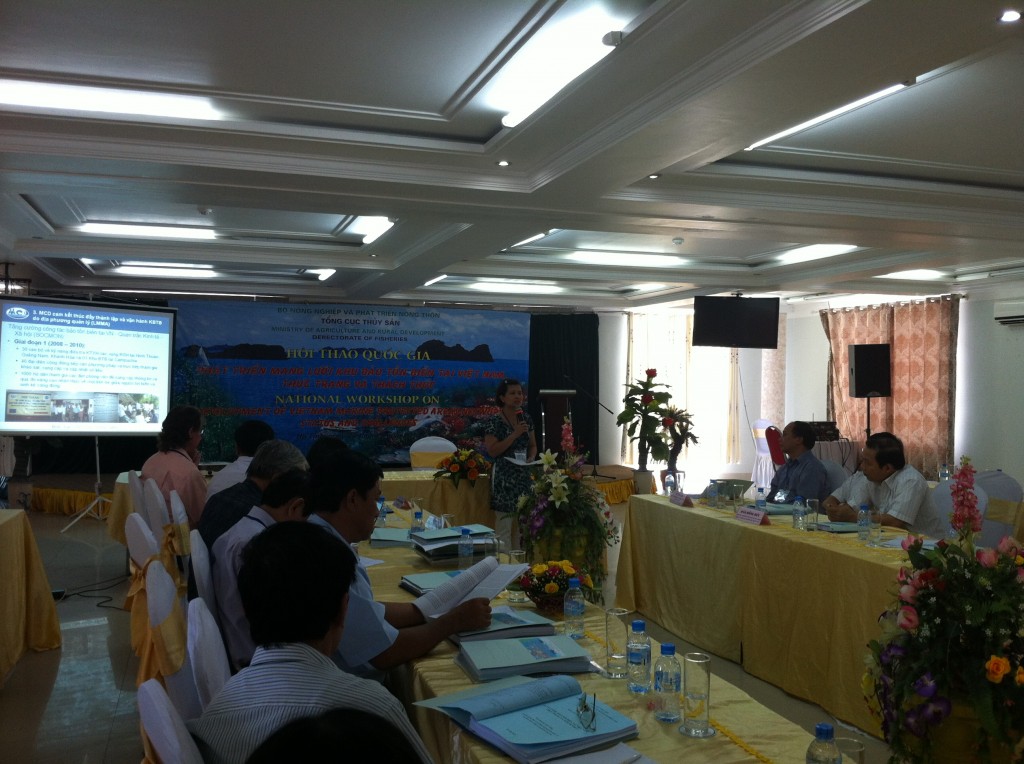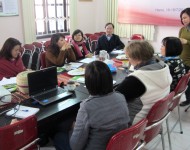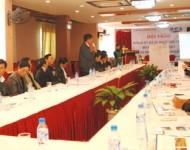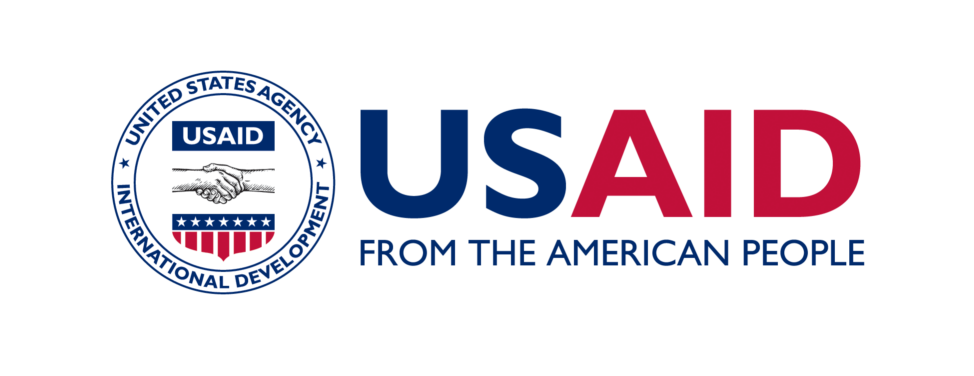News and events
Roles of NGOs in Marine Conservation in Vietnam
In response to the International Environment Day on 05/06 and Vietnam Sea and Island Week in 2013, on 06/06/2013, the Ministry of Agriculture and Rural Development held a national workshop in Ha Tinh province called, “Development of a Network of Vietnam’s Marine Protected Area’s statuses and challenges”. The workshop was presided over by the Deputy Minister of Agriculture and Rural Development, Mr. Vu Van Tam, the president of a national steering committee for the network of Marine Protected Areas (MPAs) and Vietnam’s inland Water Conservation Zones. Presentations were made by delegates from the Department of Vietnam Sea and Islands, the Department of Forestry, coastal departments of Agriculture and Rural Development, the management boards of MPAs and National Parks, and the Southeast Asian Fisheries Development Centre (SEAFDEC). MCD, as a representative of Vietnamese NGOs which contribute positively to marine conservation actions, was invited to participate in the workshop and its discussions.

Mr.Vu Van Tam emphasized the importance of MPAs. At the present, the Ministry of Agriculture and Rural Development has been conducting research to develop instructions and legislative frameworks to improve the effectiveness of MPAs in the future.
Vietnam’s marine conservation has been established for a long time, with technical and financial support from both international government organizations and NGOs. Among 16 MPAs approved in the Decision 742/QD-TTg, 26/05/2010 of Vietnam’s Prime Minister, 8 have been operative so far. Through the next steps, the government will focus on expanding the network of Vietnam’s MPAs to meet the visionary target of having 20 MPAs in operation by 2020.
In the workshop, delegates from Cu Lao Cham MPA, Nui Chua National Park MPA, and Con Dao National Park MPA shared experiences in establishment, operation, maintenance of MPAs; overcoming the depletion of financial and technical support from sponsors; and solving issues and difficulties in tourism promotion. In addition, local communities were encouraged to become involved in operating MPAs. Use of media tools was promoted to raise people’s awareness and improve coastal livelihoods. Solutions to preserve rare marine species and maintain marine biodiversity were discussed as well.
The representative of SEAFDEC shared precious lessons in establishing and managing MPAs and aquatic resource conservation areas, based on the access to the ecosystems of countries in South East Asia and management of MPAs for the benefit of local MPA networks, which require the collaborations between varying levels of authorities.
In the workshop, delegates focused on a proposal that there soon should be specific economic-technical norms for marine conservation: a complete institutional framework for MPA management. It was noticed that when establishing a MPA, consideration must be made for connections between forest and marine ecosystems, as well as regional and inter-regional factors. This ensures a scientific partition and it is necessary to supplement a classification system for natural reserve areas in MPAs. Moreover, authorities should continue to communicate to all people with access to MPAs and develop coastal livelihoods utilizing internal and external resources. Legislatively, specific, severe sanctions are needed to reduce illegal natural resource exploitation in MPAs. Efforts must also be made to enhance regional and international cooperation in MPA establishment and operation, as well as to expand national and local network of MPAs.

Mrs. Nguyen Thu Hue – Director of MCD
Presentations were made about programs and projects implemented by NGOs, local authorities, and specialized agencies to ensure the possibility and sustainability of great impacts to marine conservation. Mr. Vu Van Tam and delegates recognized the innovative ideas of MCD to encourage network activities in Vietnam’s MPAs. The workshop contributed to the provision of practical lessons for completing policies to guarantee involvement of communities and promote initiative of local levels in marine conservation.





























